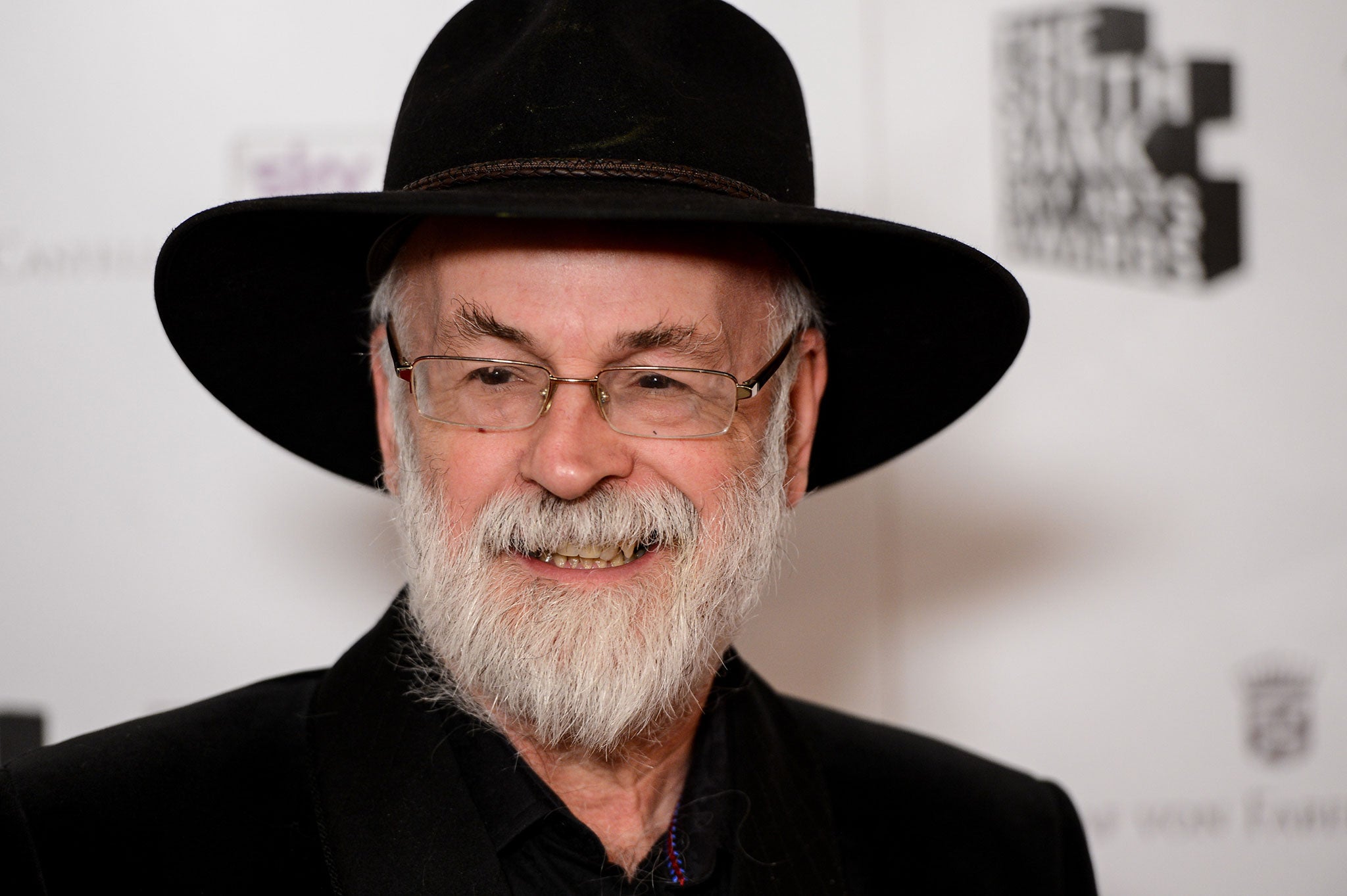Neil Gaiman on Terry Pratchett: 'He is not a jolly old elf at all - he's angry'
The author reveals that an inner fury drives his friend to write

Your support helps us to tell the story
From reproductive rights to climate change to Big Tech, The Independent is on the ground when the story is developing. Whether it's investigating the financials of Elon Musk's pro-Trump PAC or producing our latest documentary, 'The A Word', which shines a light on the American women fighting for reproductive rights, we know how important it is to parse out the facts from the messaging.
At such a critical moment in US history, we need reporters on the ground. Your donation allows us to keep sending journalists to speak to both sides of the story.
The Independent is trusted by Americans across the entire political spectrum. And unlike many other quality news outlets, we choose not to lock Americans out of our reporting and analysis with paywalls. We believe quality journalism should be available to everyone, paid for by those who can afford it.
Your support makes all the difference.Terry Pratchett is viewed by many as a "jolly old elf", a much-loved bearded author who always wears a hat.
However, sci-fi rival Neil Gaiman says his friend is fuelled by an inner rage that inspires his work.
He recalled one incident in 1991, when the pair were scheduled to appear on live radio in San Francisco for an hour-long interview. Their first stop was a book signing for Good Omens, a novel that they had written together.
Pratchett decided that, rather than get a taxi to their interview, they should walk instead – a journey that, without the invention of mobile phones, led to them get very lost. Eventually, they arrived at the radio station 40 minutes into their interview.
"We went back to our hotel, and this time we took a taxi," wrote Gaiman in the Guardian. "Terry was silently furious: with himself, mostly, I suspect, and with the world that had not told him that the distance from the bookshop to the radio station was much further than it had looked on our itinerary.
"He sat in the back of the cab beside me white with anger, a non-directional ball of fury. I said something, hoping to placate him. Perhaps I said that, 'Ah well, it had all worked out in the end, and it hadn’t been the end of the world', and suggested it was time to not be angry any more."
His approach was not well received.
"Terry looked at me. He said: 'Do not underestimate this anger. This anger was the engine that powered Good Omens.' I thought of the driven way that Terry wrote, and of the way that he drove the rest of us with him, and I knew that he was right," he said.
Gaiman continues that "there is a fury to Terry Pratchett’s writing" that stems from childhood and has never subsided.
In fact, his 2007 diagnosis of Alzheimer's has given him a new type of rage. The author was forced to pull out of The International Discworld convention in Manchester in August, stating that "the Embuggerance is finally catching up with me".
Pratchett has been outspoken in his support of assisted suicide, appearing in a 2011 BBC documentary, entitled Choosing To Die, which explores the issue in depth.
"The anger is always there, an engine that drives," added Gaiman. "By the time Terry learned he had a rare, early onset form of Alzheimer’s, the targets of his fury changed: he was angry with his brain and his genetics and, more than these, furious at a country that would not permit him (or others in a similarly intolerable situation) to choose the manner and the time of their passing."
Gaiman concedes that Pratchett is far from the affable man he is so often thought to be – not that this is to his detriment.
"Terry Pratchett is not a jolly old elf at all. Not even close," he writes.
"He’s so much more than that. As Terry walks into the darkness much too soon, I find myself raging too: at the injustice that deprives us of – what? Another 20 or 30 books? Another shelf-full of ideas and glorious phrases and old friends and new, of stories in which people do what they really do best, which is use their heads to get themselves out of the trouble they got into by not thinking? Another book or two of journalism and agitprop?
"But truly, the loss of these things does not anger me as it should. It saddens me, but I, who have seen some of them being built close-up, understand that any Terry Pratchett book is a small miracle, and we already have more than might be reasonable, and it does not behoove any of us to be greedy."
Join our commenting forum
Join thought-provoking conversations, follow other Independent readers and see their replies
Comments